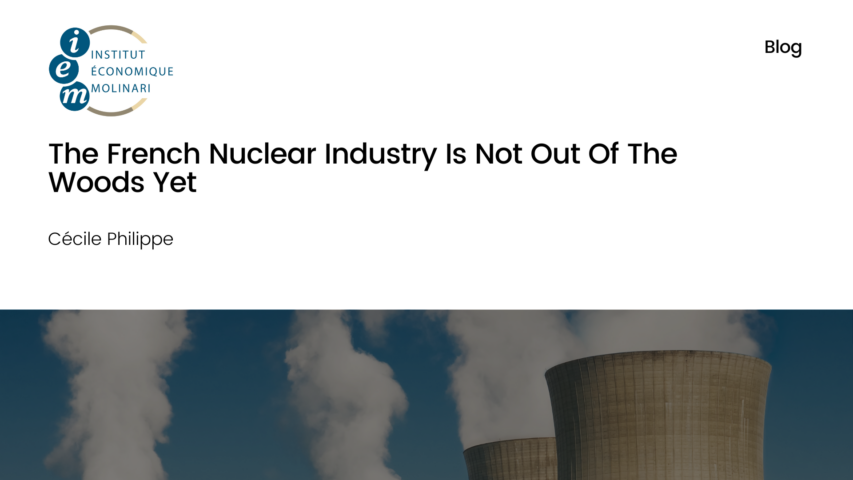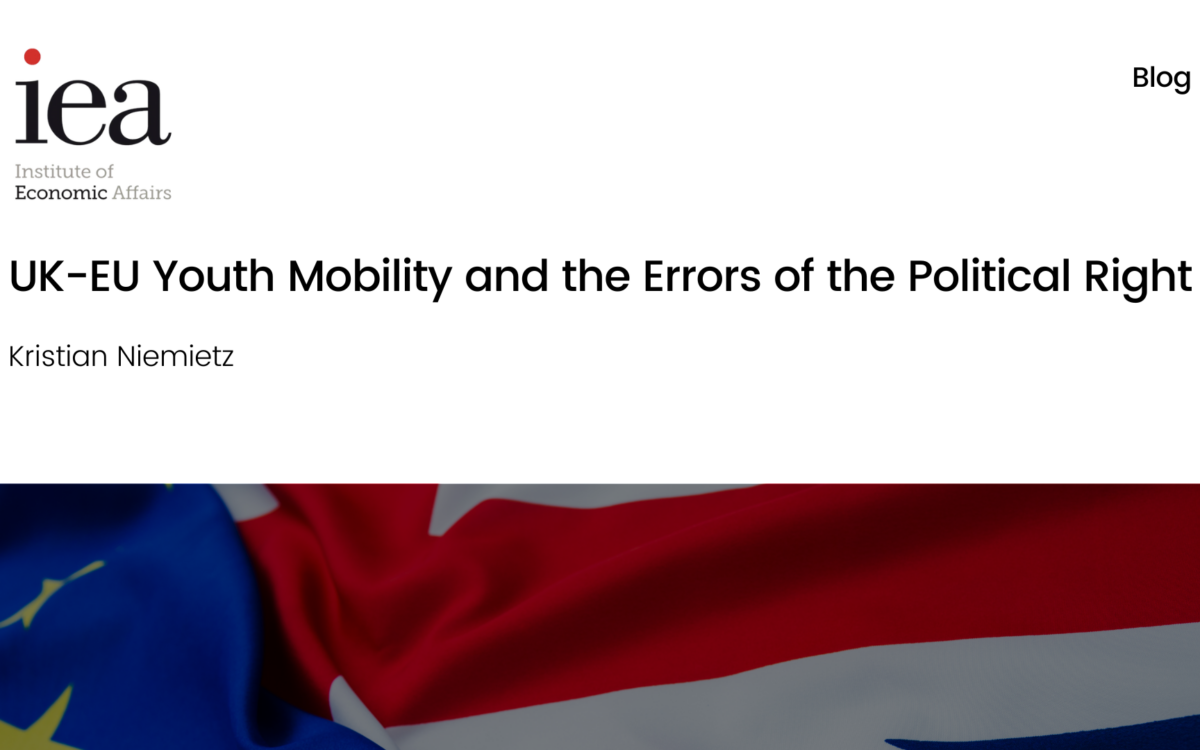The French Nuclear Industry Is Not Out Of The Woods Yet

The French Nuclear Industry Is Not Out Of The Woods Yet
Cécile Philippe // 13 February 2025
Nuclear power is currently enjoying a resurgence of enthusiasm among a section of the public. Major players, such as Amazon, Google, and Microsoft, have invested billions of dollars in nuclear energy to power their data centres while limiting CO2 emissions. However, the new European Commission has assigned key positions to two representatives who are famously opposed to nuclear power. This may complicate matters for the development of an energy that is crucial to the energy mix, especially as the French nuclear industry is not out of the woods yet.
The European Union has had a new Commission since the end of November 2024. Its new Executive Vice-President of Clean, Just and Competitive Transition, Teresa Rivera (Spain), and Commissioner of Energy and Housing, Dan Jørgensen (Denmark), are long-standing opponents of nuclear power. Spain aims to phase out nuclear power by 2035, with its first plant closure scheduled for 2027. Their appointment to the EC may not be conducive to inclusive and neutral treatment of nuclear power in the energy mix. This is all the more frustrating, as nuclear power is an environmental winner.
Over 45 years, nuclear power in France has helped avoid emissions equivalent to 25 times its total CO2 emissions in 2022. Nuclear energy is an asset in terms of energy independence and is easy to manage in large quantities. In contrast, Germany has had to use more fossil fuels to compensate for the deficit caused by its ending nuclear power.
Nuclear energy emits the least CO2 per kWh produced. The construction of a nuclear power plant, its maintenance, and its end-of-life dismantling consume 4 g of CO2-equivalent emissions per kWh. Given these conditions, nuclear power emits 3–4 times less than wind power and 8–11 times less than photovoltaic power. It is therefore reasonable to expect nuclear energy to be treated at par with other green energies in Europe. Progress on this front has been made with new nuclear facilities. Small modular reactors will now be governed by the same regulations as other renewable energies.
However, this is not the case for older plants, which will account for the bulk of France’s energy production over the coming decades. In order to benefit from Contracts for Difference, which is the key to tariff visibility, the French authorities must obtain authorisation from the Competition Directorate in Brussels. In addition to the administrative burden, this requirement subjects the future of the French nuclear industry to uncertain outcomes.
This administrative complexity is not the only obstacle facing the nuclear industry. On the one hand, it seems certain that the lifecycle of old plants can be extended by at least 60 or even 80 years, as in the United States, where – according to expert George Sapy – a series of safety improvements were implemented after the accident at Fukushima, Japan. On the other, the funding for six EPR-2s (improved versions of the European Pressured Reactors) has not been approved by the French government since its collapse in December 2024. In a highly uncertain political context, long-term energy needs – among other key areas – are at risk of being neglected. To secure France’s energy future, our leaders need to be strategic and vigilant.
This blog was originally published in French by the Insitut économique Molinari.
EPICENTER publications and contributions from our member think tanks are designed to promote the discussion of economic issues and the role of markets in solving economic and social problems. As with all EPICENTER publications, the views expressed here are those of the author and not EPICENTER or its member think tanks (which have no corporate view).



